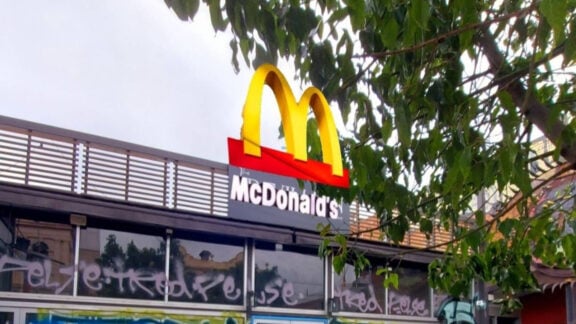As she promised at the press conference she gave immediately after deposing Kevin Rudd as the leader of the Labor party, Prime Minister Julia Gillard has called a general election for August 21- a week earlier than the date favoured by the book makers, but a winter election nonetheless.
Ms Gillard reinforced her hard line in immigration by beating up on asylum seekers – a practice successfully utilised by John Howard whose Horatio-like stand against boat people deflected attention from his government’s accelerated immigration programme.
There haven’t been many winter elections since 1949, and the last one – a double dissolution called by the then prime minister Bob Hawke amidst the brouhaha surrounding the Joh for PM campaign – was in July in 1987.
That election saw the government comfortably returned. This coming winter election ought to result in the re-election of this government as well, notwithstanding its host of policy failures.
The change in the party’s leadership from Kevin Rudd to Julia Gillard has had the effect of allowing the government to rule a line under its policy record to this point, notwithstanding Ms Gillard’s status as the second most important person in the Rudd government Gang of Four.
The Gillard exercise of distancing herself from Rudd has included trying to position her government just slightly to the right-of-centre in the policy debate.
This has been most obvious with regard to the mining tax (where big tax concessions were given to the mining companies), asylum seekers (where Ms Gillard resurrected John Howard’s policy of using third nations for the processing of unauthorised immigration) and population policy.
The change in the Labor government’s approach to population policy has been very interesting.
Clearly Labor’s focus group polling is finding disquiet with population policy especially amongst voters in marginal seats. Given that Australian fertility rates are falling, population policy actually means immigration policy.
It should be remembered that, under John Howard’ prime ministership, immigration numbers rose dramatically at the behest of Treasury where policy-makers were concerned about the consequences of an ageing population and unskilled labour shortages.
In other words, it was the Howard government that presided over a major increase in immigration numbers, and it has been left to the Rudd/Gillard government to deal with the social and political consequences of this policy.
When asked about this when he was prime minister, Kevin Rudd aligned himself with Treasury (as he always did) and projected himself as a supporter of a ‘big Australia’ based on an expanding population (buttressed by immigration, of course).
The voters were clearly not impressed with this approach, especially in the key marginal seats covering the outer suburbs of Sydney and Brisbane.
Upon becoming prime minister, Julia Gillard quickly projected herself as a supporter of ‘sustainable population’, which is code for being against the idea of higher immigration numbers.
And just in case anyone in those marginal seats harboured any doubts, Ms Gillard reinforced her hard line in immigration by beating up on asylum seekers – a practice successfully utilised by John Howard whose Horatio-like stand against boat people deflected attention from his government’s accelerated immigration programme.
Ms Gillard has understood the electoral imperative associated with taking her government out to the right-of-centre on issues such as border protection and population policy.
There are nearly 20 government seats in the balance whose voters could be influenced by the population debate.
In moving to the right, Ms Gillard ends up occupying a position in the debate usually associated with the Liberal party.
This has left Tony Abbott with little room for manoeuvre, and the opposition leader has been forced to canvass even harsher policies in a bid to differentiate himself from Ms Gillard and Labor.
What we may see in this campaign will be a situation where Julia Gillard and the Labor government seek to use the advantages of incumbency to outflank Mr Abbott and the coalition.
The appropriation of one’s opponent’s ideas and recycling them as government policy is an example of how this advantage can be exploited.
Labor used to be against off-shore processing of asylum seekers until it started to lag in the polls. Now it is in favour of such an approach, albeit with partners other than those used by the previous coalition government.
The Labor strategy in this election is clearly going to be one of making sure that the government holds the centre ground in the policy debate.
This will leave Mr Abbott with the choice of appearing to agree with the government, or try to differentiate his approach by taking a more extreme position. Here is another interesting point of difference between Rudd and Gillard.
It is now possible to say with the benefit of hindsight that Mr Rudd did not take Tony Abbott seriously enough as an opponent. It is clear that Julia Gillard will not replicate the complacency towards Mr Abbott that characterised the Rudd approach earlier this year.
It is precisely because Abbott had been performing so well as opposition leader that the Labor party panicked and changed its leader and now copies some of the policies associated with its opponents in a bid to shore up electoral support in outer suburban and regional electorates.
History suggests that few governments don’t get the chance of a second term, and, on the basis of this, the weight of history suggests that Labor will be re-elected in August.
Having said this, it is also clear that Ms Gillard is not taking the same complacent approach to Tony Abbott as did her predecessor. Gillard has shown that she is a canny strategist in the way she seeks to deny the Liberals oxygen on issues that had been sustaining the opposition during Rudd’s time as leader.
As much as it annoys left-wing ideologues, the Labor party’s adoption of a conservative position on border security and population policy is outflanking Mr Abbott. If the election campaign continues in this vein, Labor will win the election comfortably.
Dr Nick Economou is a senior lecturer in Politics Monash University and a regular contributor to Neos Kosmos and other media.








